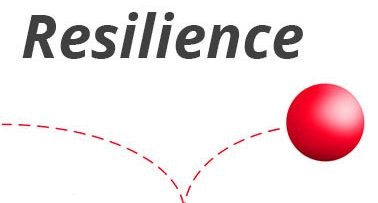Published - Thu, 03 Oct 2024

Overcoming disappointments and setbacks
Overcoming Disappointment: A Guide to Turning Setbacks into Stepping Stones
Disappointment is a universal human experience. We all face moments when things don't go our way, when our hopes are dashed, and when our expectations are left unfulfilled. While these feelings can be painful and even debilitating, it's important to remember that disappointment is not the end of the story. It's an opportunity for growth, resilience, and even a chance to re-evaluate our goals and priorities.
This article will explore the nuances of disappointment, delve into effective strategies for overcoming it, and offer practical tips for turning setbacks into stepping stones on your journey to personal and professional success.
Understanding Disappointment
Disappointment arises when there's a gap between what we hoped for or expected and what actually happened. It can be triggered by a variety of events, such as:
- Relationship Issues: When loved ones fail to meet our expectations, or when relationships end unexpectedly.
- Career Setbacks: When we don't get the promotion we desired, when a project fails, or when we experience rejection in our professional endeavors.
- Personal Goals: When we fail to achieve a personal goal, such as losing weight, learning a new skill, or completing a marathon.
- Unforeseen Circumstances: When events beyond our control disrupt our plans, like a sudden illness, a natural disaster, or a job loss.
The intensity of our disappointment often depends on the significance of the event and our emotional investment in the outcome. The key to overcoming disappointment lies in understanding its root causes and developing healthy coping mechanisms.
The Impact of Disappointment
Disappointment can have a significant impact on our mental and emotional well-being. It can lead to feelings of sadness, anger, frustration, and even despair. It can also affect our self-esteem, confidence, and our ability to move forward.
Here are some common ways disappointment can manifest:
- Emotional Distress: Disappointment can trigger a range of negative emotions, including sadness, anger, frustration, and even resentment.
- Reduced Motivation: Disappointment can lead to a loss of motivation and a sense of apathy towards our goals and aspirations.
- Self-Criticism: We may engage in negative self-talk, blaming ourselves for the outcome and questioning our abilities.
- Withdrawal: We may withdraw from social interactions, isolating ourselves from loved ones and support systems.
- Physical Symptoms: Disappointment can manifest in physical symptoms such as fatigue, headaches, and changes in appetite.
Strategies for Overcoming Disappointment
While disappointment is a challenging emotion, it's not an insurmountable obstacle. Here are some effective strategies for overcoming disappointment and moving forward:
1. Acknowledge and Accept Your Feelings:
The first step to overcoming disappointment is to acknowledge and accept your feelings. Don't try to suppress or ignore them. Allow yourself to feel the pain and sadness, but don't dwell on it.
- Tip: Journaling can be a helpful tool for processing your emotions. Write down your thoughts and feelings without judgment.
2. Don't Dwell on What Might Have Been:
It's easy to get caught up in dwelling on what could have been. But focusing on the past only prolongs the pain. Instead, shift your attention to the present moment and focus on what you can control.
- Tip: Practice mindfulness exercises to help you stay present and grounded.
3. Re-evaluate Your Expectations:
Disappointment often arises from unrealistic expectations. Take some time to reflect on your expectations and see if they were reasonable and attainable.
- Tip: Set realistic goals and break them down into smaller, manageable steps.
4. Practice Gratitude:
Focusing on gratitude can help shift your perspective and remind you of the good things in your life. Even amidst disappointment, there are likely things to be thankful for.
- Tip: Keep a gratitude journal and write down three things you're grateful for each day.
5. Find Meaning in the Experience:
Disappointment can be a catalyst for growth and learning. Ask yourself what you can learn from the experience and how you can use it to move forward.
- Tip: Consider the lessons you can take away from the situation and how you can apply them to future endeavors.
6. Seek Support:
Don't hesitate to reach out to friends, family, or a therapist for support. Talking to someone you trust can help you process your emotions and gain perspective.
- Tip: Join a support group or online forum for people who have experienced similar disappointments.
7. Focus on Your Strengths:
Disappointment can sometimes make us focus on our weaknesses. Instead, take time to reflect on your strengths and accomplishments.
- Tip: Make a list of your strengths and achievements and review it when you're feeling down.
8. Take Action:
One of the best ways to overcome disappointment is to take action. Focus your energy on positive steps you can take to move forward.
- Tip: Set new goals, pursue new opportunities, and engage in activities that bring you joy and fulfillment.
9. Practice Self-Compassion:
Be kind to yourself during this challenging time. Remember that everyone experiences disappointment, and it's okay to feel down.
- Tip: Treat yourself with the same compassion and understanding that you would offer to a friend going through a difficult time.
10. Seek Professional Help:
If you're struggling to cope with disappointment or if it's significantly impacting your life, don't hesitate to seek professional help from a therapist or counselor.
- Tip: There are many resources available online and in your community to help you find a qualified mental health professional.
Turning Setbacks into Stepping Stones
Overcoming disappointment is not about erasing the pain or pretending it didn't happen. It's about learning from the experience, growing stronger, and moving forward with a renewed sense of purpose. By embracing the lessons learned, we can turn setbacks into stepping stones on our path to personal and professional growth.
Here are some practical ways to turn setbacks into stepping stones:
- Identify the Underlying Cause: Analyze the situation and understand the root cause of your disappointment. Was it a lack of preparation, unrealistic expectations, or external circumstances?
- Reframe Your Perspective: Instead of focusing on what you lost, consider what you gained from the experience. Did you learn new skills, develop resilience, or gain valuable insights?
- Seek New Opportunities: Use the disappointment as a catalyst to explore new opportunities and pursue different paths.
- Embrace the Unexpected: Disappointment can sometimes lead us to unexpected and fulfilling paths. Be open to new experiences and embrace the unknown.
Conclusion
Disappointment is an inevitable part of life, but it's not a defining moment. By embracing the strategies outlined in this article, you can overcome disappointment, learn from your experiences, and emerge stronger and more resilient. Remember that setbacks are not failures, but opportunities for growth. Embrace the challenge, learn from the experience, and continue to strive for your goals with renewed determination.
FAQ
Q: How long does it take to overcome disappointment?
A: There's no one-size-fits-all answer to this question. The time it takes to overcome disappointment varies depending on the individual, the severity of the disappointment, and the support system available. It's essential to be patient with yourself and allow yourself time to heal and process your emotions.
Q: How do I know if I need professional help?
A: If your disappointment is causing significant distress, affecting your daily life, or interfering with your ability to function, seeking professional help from a therapist or counselor is a wise decision.
Q: What if I keep experiencing disappointment?
A: If you find yourself repeatedly experiencing disappointment, it might be helpful to explore underlying issues such as low self-esteem, unrealistic expectations, or a pattern of negative thinking. A therapist can help you address these issues and develop healthier coping mechanisms.
Q: How can I prevent disappointment in the future?
A: While you can't completely prevent disappointment, you can minimize its impact by setting realistic expectations, focusing on what you can control, and developing a positive mindset. It's also helpful to cultivate a strong support system and practice self-care to build resilience and emotional well-being.
Comments (0)
Search
Popular categories
Career Development for Chaplains
4Latest blogs

Overcoming disappointments and setbacks
Thu, 03 Oct 2024

"Nurturing the Soul: Understanding the Vital Role of Career Development for Chaplains"
Fri, 27 Sep 2024

"The Power of Partnerships: Strengthening Non-Profit Chaplaincy Organizations"
Fri, 27 Sep 2024
Write a public review